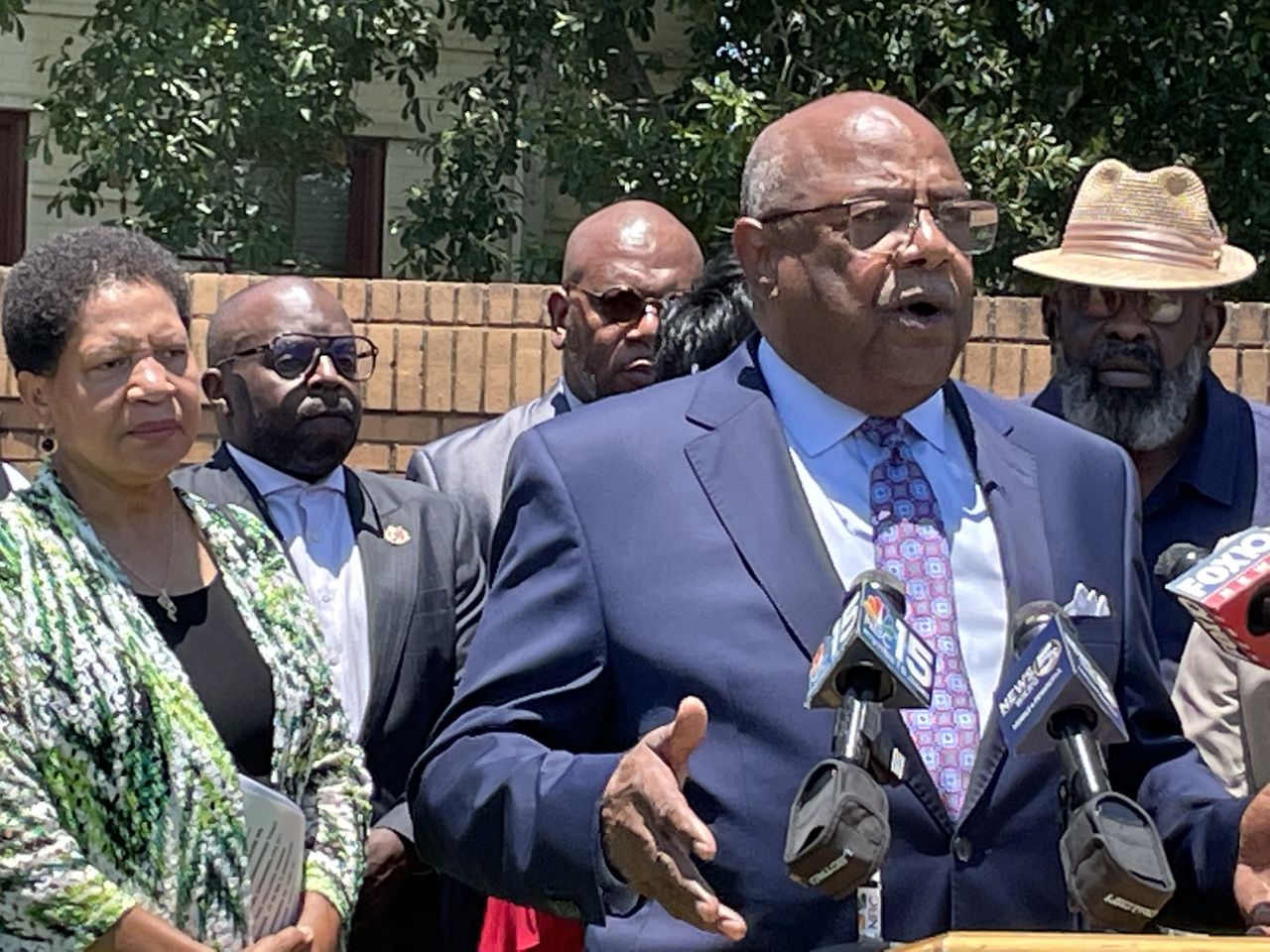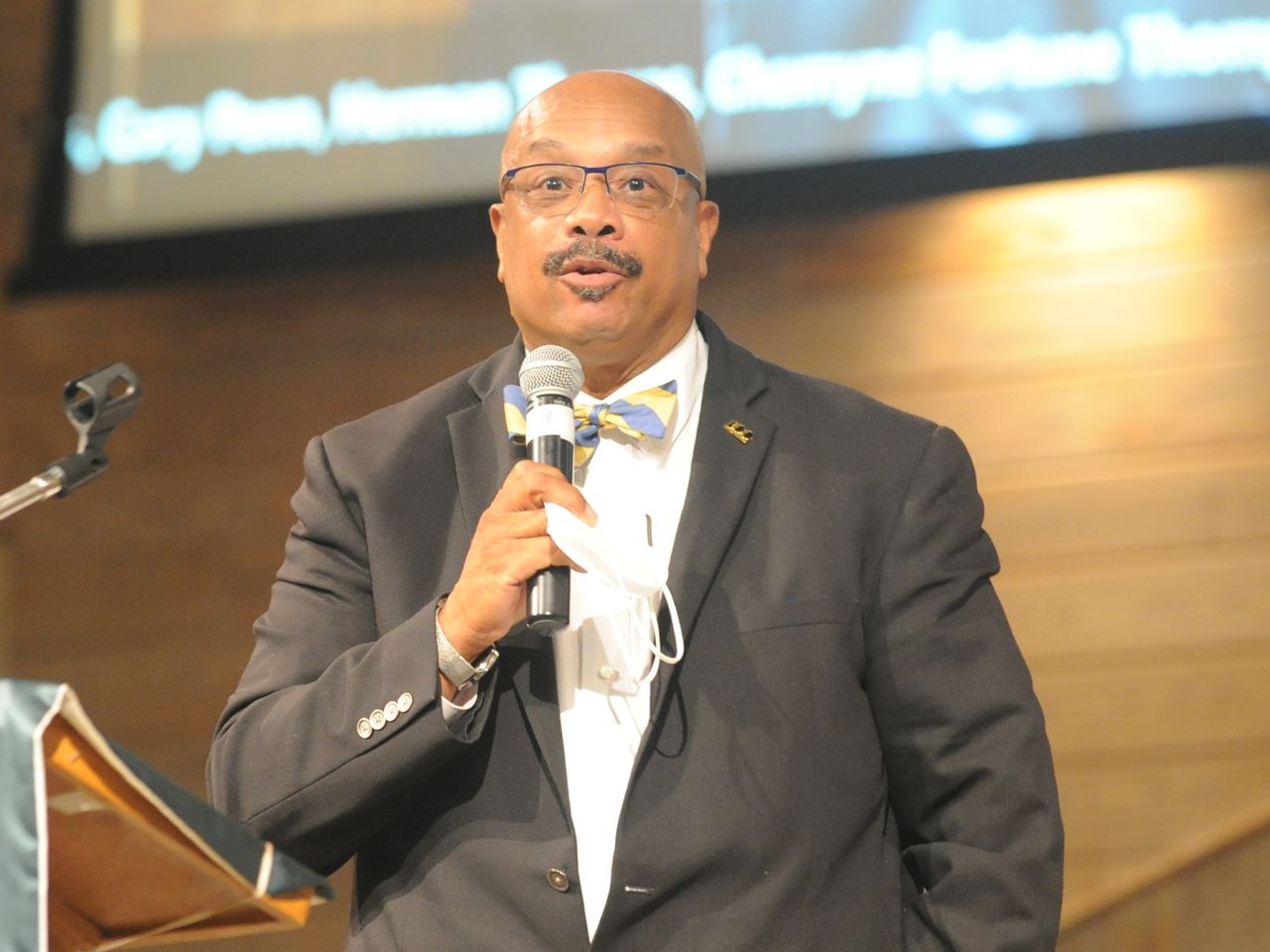For Mobile, a push is on to get a Black judge on the bench
When Cain Kennedy died in 2005, newspaper stories called him a “pioneer” as Alabama’s first Black circuit judge after Gov. Fob James appointed him to oversee domestic relations cases in Mobile County in 1979.
Since then and spanning over 44 years, only two other Black judges – Herman Cain and Vickie Davis – have served either within the 13th Judicial Circuit (which is Mobile County) or in District Court.
No Black judge has served in either circuit or district courts in Mobile County since 2008. Right now, the combined 15 circuit court and district judges are white.
It’s a reality that has a group of Democratic state lawmakers appalled, and angling for change. They are eying a recent court vacancy in hopes that Alabama Gov. Kay Ivey will appoint a minority judge to Alabama’s second largest county.
The vacancy occurred following the Jan. 10 death of Mobile County Circuit Judge James Patterson.
“If you look at the courts, it’s not indicative of the people we serve,” said state Rep. Barbara Drummond, D-Mobile. “When you look at the numbers of people who go through that court system, a majority of those are minorities. It would only seem fair we would have a minority in our court system.”
Said State Senator Vivian Figures, D-Mobile, “In a diversified county like Mobile, it’s unconscionable we don’t have at least one.”
The state’s overall population demographics are 68% white, 27% Black.
But of the state’s 146 circuit court judges, 78% are white and 22% are Black, according to data compiled by the National Center for State Courts. And the disparity on the district court bench is greater – of the state’s 106 district court judges, 85% are white while 15% are Black.
Alabama’s highest courts also remain entirely white – the 10 appellate court judges, and nine justices to the Alabama State Supreme Court – are white.
By comparison, Alabama’s judicial circuits are more diverse than Texas, Kentucky, and Arkansas, according to the Center’s database.
‘Speaks volumes’
State Rep. Barbara Drummond, D-Mobile, provides an update on Alabama House Democratic initiatives during a news conference on Wednesday, April 28, 2021, at the State House in Montgomery, Ala. (John Sharp/[email protected]).
Drummond said the plan is to encourage as many Black lawyers apply for the open judicial seat in Mobile County. Recommendations to fill that seat will be made by the Mobile County Judicial Commission, which consists of five members and is charged with screening applicants before suggesting three possibilities and forwarding their names to Ivey’s office for final consideration.
Prospective judges have until March 3 to pick up an application, and until April 3 to return them to Government Plaza. The commission will name the applicants, at which point the public will get a chance to provide commentary. The entire process is scheduled to wrap up on May 5, at which time the commission will meet to pick the final three.
Presiding Judge Michael Youngpeter, when asked about the concerns expressed over the lack of diversity on the county’s bench, said “I am unfamiliar with the comments.”
Drummond said the need for minority representation is about “common sense.”
“Our bench is not diverse, racially,” said Drummond. “That’s not a hidden fact. Look at it. Not one minority on the district or circuit court sitting on the bench in Mobile County. If you look at other parts of the state, it’s not this way.”
Of the state’s four largest counties – Jefferson, Mobile, Madison and Montgomery – only Mobile is without any Black representation on the bench. Baldwin and Shelby counties, both of which are over 80% white, also do not have minority representation within their circuit or district courts.
Mobile County’s demographics are 58.5% white, 36.6% Black. The city of Mobile is overwhelming majority-minority at 52.5% Black, 41.5% white.
“The lack of not having a minority on that bench speaks volumes of who we are as a community,” Drummond said.
The lack of minority representation within the county’s judiciary could highlight the difficulties of electing Black politicians outside the City of Mobile – a sticking point that has lingered over arguments against annexing unincorporated areas west of the city.
Related: Intense racial polarization remains ‘elephant in the room’ over Alabama annexations
‘Racial lines’

State Rep. Sam Jones, D-Mobile, speaks during a news conference on Monday, June 6, 2022, outside Bishop State Community College in downtown Mobile, Ala. Standing to the left is state Rep. Adline Clarke, D-Mobile. (John Sharp/[email protected]).
State Rep. Sam Jones, D-Mobile, who served as the city’s first Black mayor from 2005-2013, said that absent sweeping reform in how judges are elected, he does not foresee a Black judge winning a countywide race. The county’s judicial makeup currently consists of 10 circuit court judges, and 5 district court judges.
He believes the only way a Black judge can be elected is through geographically defined districts, or through non-partisan judicial contests. Alabama is one of only five states that selects all its judges through partisan elections, according to the Montgomery-based Equal Justice Initiative.
Jones is skeptical that removing partisanship from judicial elections will happen anytime soon, noting that the Alabama Legislature is dominated by a supermajority Republican majority.
Mobile County has elected Black judges before, but it’s been a long time ago. Kennedy, for instance, was elected countywide after his initial appointment to the bench by James.

Herman Thomas, a former Mobile County Circuit judge, speaks during a candidates forum on Monday, July 26, 2021, at Truevine Baptist Church in Mobile, Ala. Thomas was the last Black judge to serve in either the circuit or district courts in Mobile County. He left office in 2008 before he faced multiple criminal charges during his time in office. A jury returned not-guilty verdicts on some charges and deadlocked on others, which a judge dismissed. (John Sharp/[email protected]).
Thomas, too, was elected countywide. In 1996, he won a six-year term as District Judge after being re-elected by an almost 20 percentage point margin.
But Jones said the rise of racial polarized voting, and hyper partisanship in elections has made it almost impossible for a Black judge to win countywide.
“I think when you really look at it, especially since 2010, people in Mobile for the most part vote down racial lines,” said Jones.
‘Something needs to be done’
Federal courts have taken a look at Alabama’s judicial circuits before. In the mid-90s, the U.S. Supreme Court rejected arguments that judicial circuits should be reformed to assure the election of additional minorities to the bench.
The ruling ended a decade of debates over whether the judicial circuits should be determined through geographic districts.
Robert Clopton, president of the Mobile County NAACP, said the inability to get minority representation on the bench is problematic, and illustrates “something that is wrong with our system.”
He said, “It needs to be revisited so a person of color can have an opportunity to win a judgeship. Something needs to be done.”
Ralph Cook, a Birmingham lawyer who served on the Alabama State Supreme Court from 1993-2001, said the state’s counties with metropolitan areas – Jefferson, Madison, and Montgomery – have minority representation on their benches.
Mobile County, given its population size of 414,809 people and major city the size of Mobile, stands out, he said, for only having three Black judges since Jimmy Carter’s presidency.
“Shall we say, Mobile has the distinction of being in that position alone,” Cook said.
